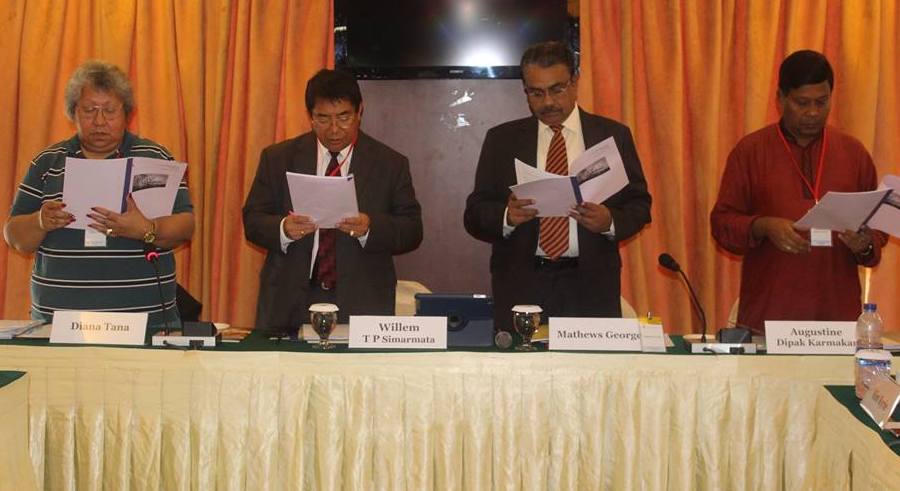CCA Executive Committee Commits to Revitalising the Ecumenical Movement

The recently concluded meeting of the executive committee of CCA affirmed its commitment to reshape the ecumenical identity in Asia and discussed possibilities on how to revitalise the ecumenical movement as CCA move towards the 60th anniversary of its founding in 2017.
Founded in 1957, CCA became the first Regional Ecumenical Organisation in the world, and today covers a vast geographical area starting from Iran in West Asia to Japan in East Asia; from Nepal in the North to New Zealand in the South.
The moderator of CCA, Archbishop (Ephorus) William Simarmata, in his opening address stated that “Asia today faces numerous challenges and when people of various Asian countries are passing through difficult situations in the midst of violence and terrorism, churches and the ecumenical movement have special responsibility to be in solidarity with the affected people and communities”.
CCA General Secretary Dr. Mathews George Chunakara,in his report to the executive committee,told,“the geopolitical threats now have topped the risk index, overtaking the financial crisis, and what is being experienced now is an ‘annus horribilis’ in the geopolitical arena, especially in terms of increasing conflicts, violence and threats to peace and security”.
He added that religious extremism has emerged as the most serious threat to democratic values, peace and security in most Asian countries. A growing concern is that the spread of terrorism orchestrated in the name of certain religions has become the most immediate threat to people’s security in Asia. Such a situation warrants concerted action to overcome violence and promote religious harmony and peace.
In addressing concerns of the current state of affairs of ecumenism, the CCA General Secretary raised a question “has the ecumenical movement becomes more divisive and less effective?”He said that “the Asian ecumenical movement is not detached from the global ecumenical movement.We believe in one ecumenical movement and the need for affirming and strengthening the value of one ecumenical movement. However, we see today more visible expressions of lack of coherence and coordination within the ecumenical movement”.
The General Secretary’s report recollected that “CCA has been providing the Asian churches a sense of togetherness and a common responsibility in doing Mission, as well as helping churches to discern Christ’s presence in Asian history in terms of its socio- religious, economic and political context. Mission in action involves the participation in all forms of struggles and it cannot be merely interpreted as adding numerical numbers or church planting. The purpose of God for the Church in Asia is life together in a common obedience to him for the doing of God’s will in the world”.
The CCA General Secretary expressed the hope that “ecumenism in Asia will grow and flourish to face the challenges that Asia faces today, and CCA will be instrumental to bear witness to the truth in Asia”.
The executive committee expressed its deep concern over the increasing problems of religious intolerance and hatred, which lead to persecution and acts of violence that cause untold sufferings to people of all faiths, especially religious minorities, in Asia.
The executive committee meeting was hosted by the Huria Kristian Batak Protestant Church (HKBP), Indonesia.
Also read:










